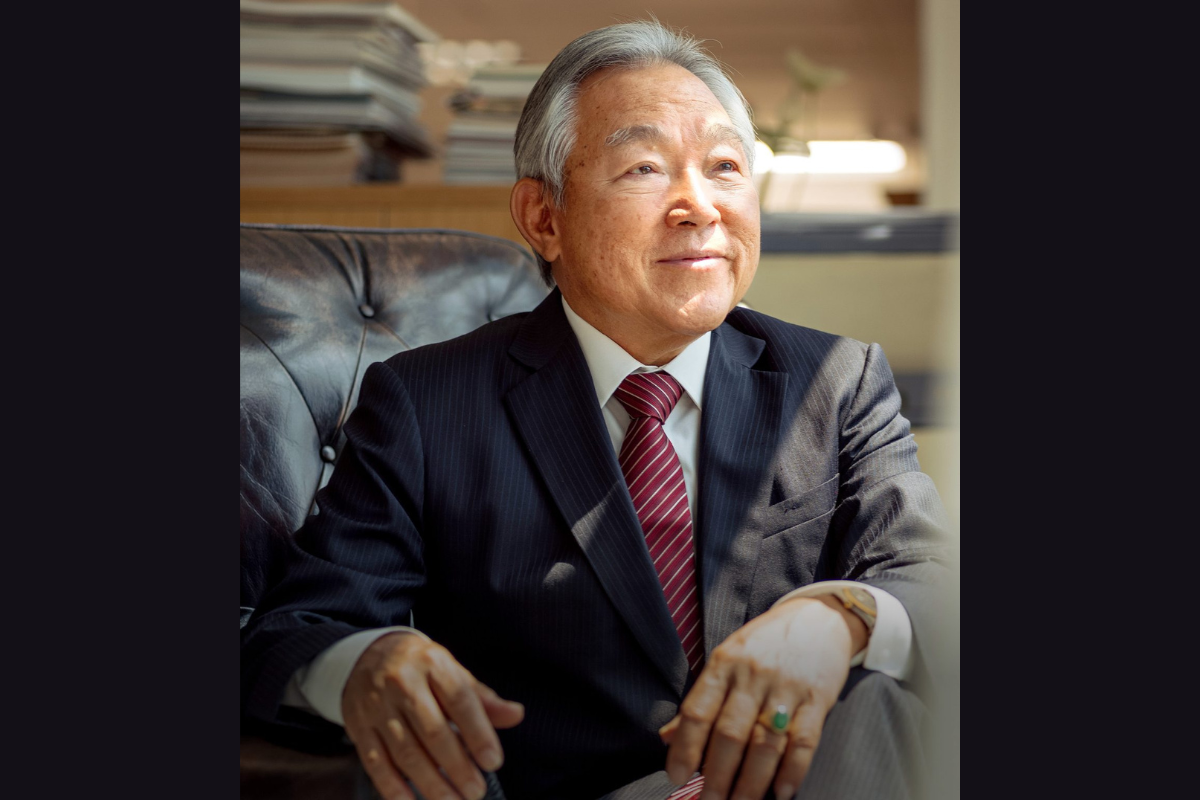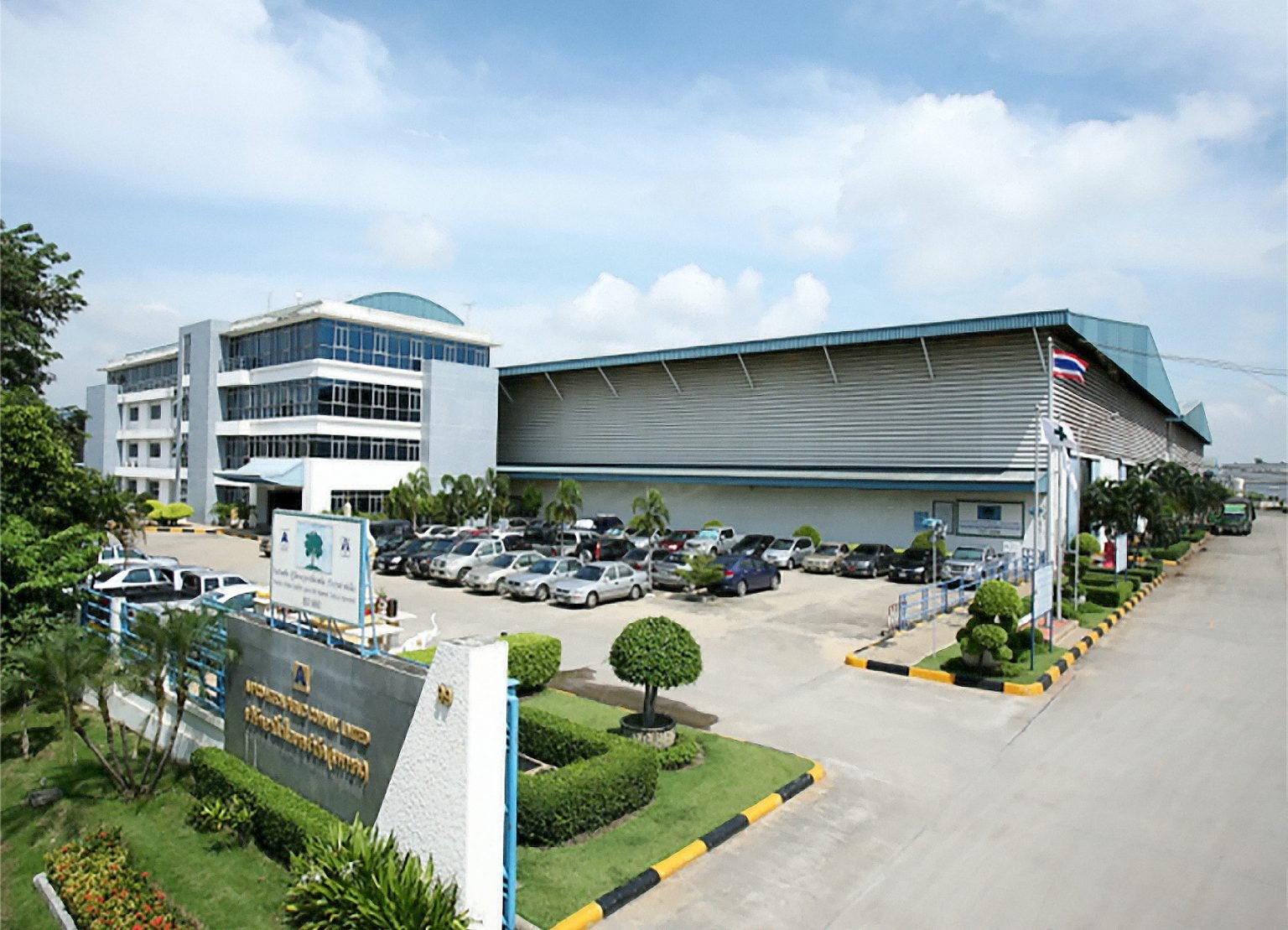Electric Dreams: Swee Chuan Yeap
Chairman and CEO of Thailand’s AAPICO Hitech, Swee Chuan Yeap sees growth opportunities in international markets and the EV boom.
A problem, rather than an opportunity, was what triggered the founding of Able Auto Parts Industry Company Hitech (AAPICO) in 1996.

"I came to Thailand from Malaysia in 1985 and for 10 years had been losing money," Founder, Chairman and CEO Swee Chuan Yeap tells The CEO Magazine. As the local distributor of Ford, his main revenue stream had dried up when the car manufacturer established its own footprint in the country.
"I needed to generate some business to pay debts to the bank," he continues. So he turned to manufacturing auto parts.
The idea was to clear what he owed and then return home to Malaysia. But his nascent company quickly won a contract to make auto parts for, as it would happen, Ford. From there, he invested in a small piece of land in Ayutthaya to build his first plant in 1997.

You must have integrity in what you do and be honest so that people can trust you, both those inside and outside of the company.
Then bad news struck. The ‘Tom Yum Kung’ Asian financial crisis started in the same year.
"As time progressed, I knew we needed more money," he reflects.
So in 2002, the business was listed on the SET (Stock Exchange of Thailand), and just after listing it purchased Dana Thailand, an American axle frame company. A well-established, sizable business, the acquisition doubled AAPICO’s revenue overnight and heralded the arrival of a new name on the scene.
"A Thai company taking over a global American company. Can you imagine that?" he says with a smile.
A global outlook
The road hasn’t always been smooth – the global financial crisis and the flooding of its Ayutthaya factory in 2011 are particular challenges he names – but AAPICO today employs more than 5,300 people and is a trusted OEM parts manufacturer for brands such as Isuzu, Toyota, Mitsubishi, Ford and many more, with plants in Ayutthaya, Samut Prakarn, Chonburi and Rayong. Car dealerships in Thailand and Malaysia comprise the second business pillar, while IoT connectivity and mobility, including car navigation systems and telematics, are the third of the company’s pillars of activity.
A key milestone in the growth story of the business was the expansion into China in 2004. Portugal, India and Malaysia have followed.
For Yeap, continuing its push into international markets is a core focus for growth in the medium- to long-term.
"From here on, our vision is to be a more global company," he says, noting that acquisitions of high-tech companies to support its operations is one strategy. "That means we have to look for companies in Japan, the United States or Europe, where there’s the technology that we can bring home."
The other opportunity he cites is electric cars.
"We are looking at how to manufacture more EV [electric vehicle] components because the growth for EVs is very strong," he explains.
The company already is well-positioned in the EV market because 90 percent of its components, such as the forging, casting, frame, plastic and steel press parts of the car can be used in EVs as well.
"But there’s potential for big incremental growth in battery and electronic components for EVs. So these are areas we are strongly investigating," he says.
Lean and happy
If there’s any challenge to these growth opportunities, however, it comes in the form of recruiting the right talent.
"Our problem is that, as a Thai company, our English-language skills are not as good as some other countries," he explains, noting that carries with it an outlook that perhaps the company isn’t as global or confident as it could be. "This is our challenge, but to overcome that we try to employ people from different countries."
Since day one, Yeap has had the vision to lead a lean and happy company. That means having happy customers, happy employees, happy shareholders and a happy public, he explains.
"For happy customers, we must have a safe company delivering good quality products while also achieving zero PPM [parts per million] – or reduce waste and reduce scrap," he says, adding that solid processes, the use of robotics, good management and engineering as well as perfect delivery are the hallmarks of a successful global parts company.
We have a culture that values teamwork, views problems as opportunities and promotes loyalty, honesty and mutual respect.
"To keep our people happy, we have a culture that values teamwork, views problems as opportunities and promotes loyalty, honesty and mutual respect," he continues. "For happy shareholders, we try to pay reasonable dividends. And for a happy public, we have many CSR undertakings."
These include donating to hospitals and charities across the country during the COVID-19 pandemic, as well as funding scholarships for students.
ESG has, he says, been embedded in the company from the beginning, thanks to these values. It is also a five-star corporate governance company which supports the anti-corruption movement.
"It’s a big focus and we have people to guide us as well," he explains. "We benchmark against top companies and invite their leaders to come and lecture with us."
A leader’s responsibility
"I come from very humble beginnings," he says. "I started from almost zero, with no financial support. I didn’t have a father or big brother to finance me."
Through hard work and smart savings, he slowly built the business up. He’s acutely aware of how pivotal his actions as a leader are to the overall success of the business and preaches his professional guidelines of "honesty, sacrifice and know your duty" to all employees.
You must always know what you have to do. This is your responsibility as a leader.
"You must have integrity in what you do and be honest so that people can trust you, both those inside and outside of the company," he says. "A leader must also sacrifice. During the flood, I worked in dirty waters, and people saw that."
Fast Fact
AAPICO comprises 47 subsidiaries and associate companies, of which 33 companies are in Thailand and 14 are based out of the country.
What’s most important, however, is to know your job.
"What is your job as a CEO of the company? It’s very important to define," he says. "You must always know what you have to do. This is your responsibility as a leader."